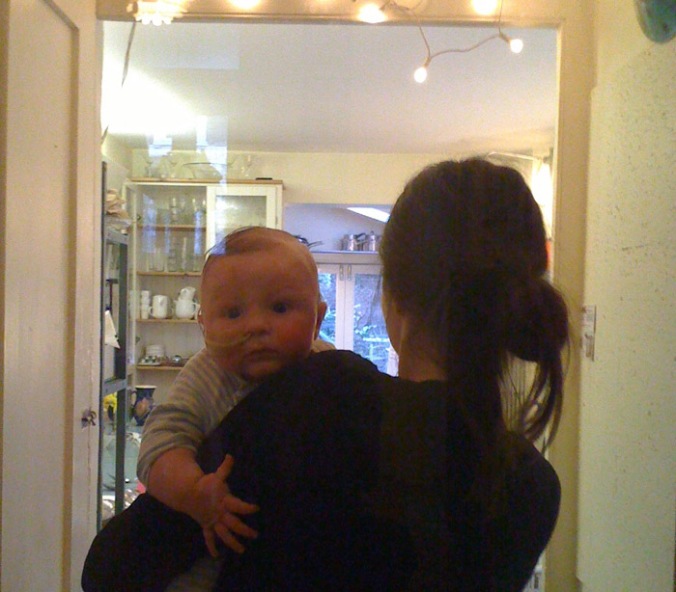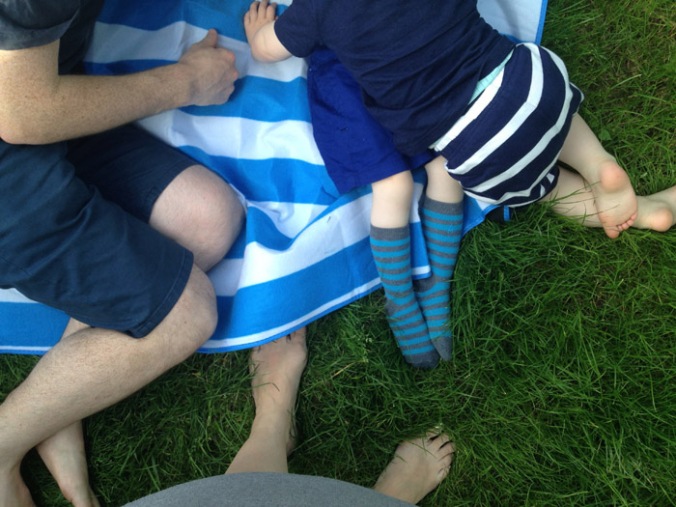The other day my mum sent me a link to a blog by Alain de Botton about psychoanalyst John Bowlby and his work on attachment theory. “I’m not sending it for any particular reason by the way”, she added a little nervously – presumably just in case I thought she was accusing me of raising children with attachment disorders.
I know very little about psychoanalysis and so a lot of the detail is unfamiliar to me. Essentially I understand from the article that Bowlby looked at how our experience of early maternal care shapes the way we form relationships throughout our lives, suggesting that kindness does not smother and spoil children.
“Bowlby poignantly invokes loving care that a little boy needs: ‘all the cuddling and playing, the intimacies of suckling by which a child learns the comfort of his mother’s body, the rituals of washing and dressing by which through her pride and tenderness towards his little limbs he learns the values of his own…’ Such experiences teach a basic trust.”
The typical development of children is that they are wholly dependent when babies, in a tactile, floppy, defenceless way and then as they grow they get more physically and psychologically independent. They begin to sit in a highchair rather than your lap, they crawl and then run away from you, they talk to people without needing you to interpret. Much of this trajectory is stalled or disrupted for Ben; he is still dependent, he cannot move away.
This means we retain the lovely physical proximity of a child on your lap, of a small head nestled in your neck. We now know his body almost as well as he does and he knows exactly what we feel like.
In the 1950s Bowlby researched the trauma experienced by children who were separated from their parents during hospital stays, when visiting times were restricted and mothers not allowed to hold their sick children.
“It took a long time for Bowlby’s ideas about the importance of the early bond between the mother and child to get broader recognition and support. But it did happen, eventually. There was no single dramatic revolutionary moment. Many thousands of people changed their minds in small ways: an idea that sounded stupid, came to seem mildly interesting… so that today a child facing a frightening operation is surrounded by love and kindness and her parents get to sleep in a bed beside her.”
I wasn’t able to hold Ben until he was four days old when he was still surrounded by wires and tubes. On day six we visited the hospital and were holding him for most of the day. A nurse said we should be careful we didn’t spoil him – if he got too used to cuddles he would want them all the time. I think that was an incredibly mean-spirited thing to have said to people in our position. I couldn’t imagine anything better than being able to cuddle my son all the time, and hated that we left him there overnight while we returned home. The saving grace was that we didn’t really know him yet and he was so ill that he needed nurses more than he needed parents.
Recently we have spent two days in a different hospital while Ben has had general anaesthetics for tests. He knows exactly what’s going on and puts up with the whole thing with extraordinary patience. No-one loves being in hospital – that unique combination of lack of control, limited daylight and sitting around makes me feel more exhausted than after a run. But the bit of the day that is almost unbearable is the period of time when I know Ben is sedated and that he will wake up soon, but I can’t be certain they will come and get me immediately. So there may be a moment when he opens his eyes and he’s in an unfamiliar room, confused by the fading anaesthetic, surrounded by strangers. I don’t know if it’s a legacy of the early hospital stay or the fierce protectiveness of motherhood, but it makes me feel incredibly sad. Imagine if we weren’t there at all, if we weren’t allowed to be there.
Bowlby’s work suggests that children need parents to be consistent and loving, to meet their needs and make them feel safe. That, he argues, is how children develop into adults who can form healthy relationships.
Ben’s disability means he is dependent on many adults; he has more physical contact than an average four year old would have with people who aren’t his parents. More intimate tasks undertaken by people he hasn’t necessarily chosen. James and I can’t do all of the ‘mothering’ that Bowlby describes so we have to broaden the circle and hope that we can still produce a child who is secure in his attachment, who feels safe and has healthy relationships.
Ben needs a village, not just two parents, to tend to his washing and dressing, the feeding and cuddling. He and we are used to him being looked after by other people, some paid some not. We hope that by making sure these people are kind and competent he feels secure. He can tell whether he can trust people – whether they are holding him safely and will meet his needs.
We are looking into having someone stay at our house overnight to get up with Ben when he wakes. Almost five years of getting up most nights is a lot of missed sleep and I like the idea of someone else doing it. It is the next stage in a life that will only involve more paid carers, not fewer.
But of course, the reality is that someone else will be going in to Ben, into his bedroom at 3 in the morning, when he expects it to be me. We can interview suitable candidates and check their CVs but really you want someone who will cuddle correctly in the middle of the night and that’s tricky to test. We have to have high standards – there is nothing more important than a four year old boy feeling safe in his own bed. It is our responsibility, and it’s making us anxious.
Top photo: Ben with my sister Maddy when he was 3 months old


